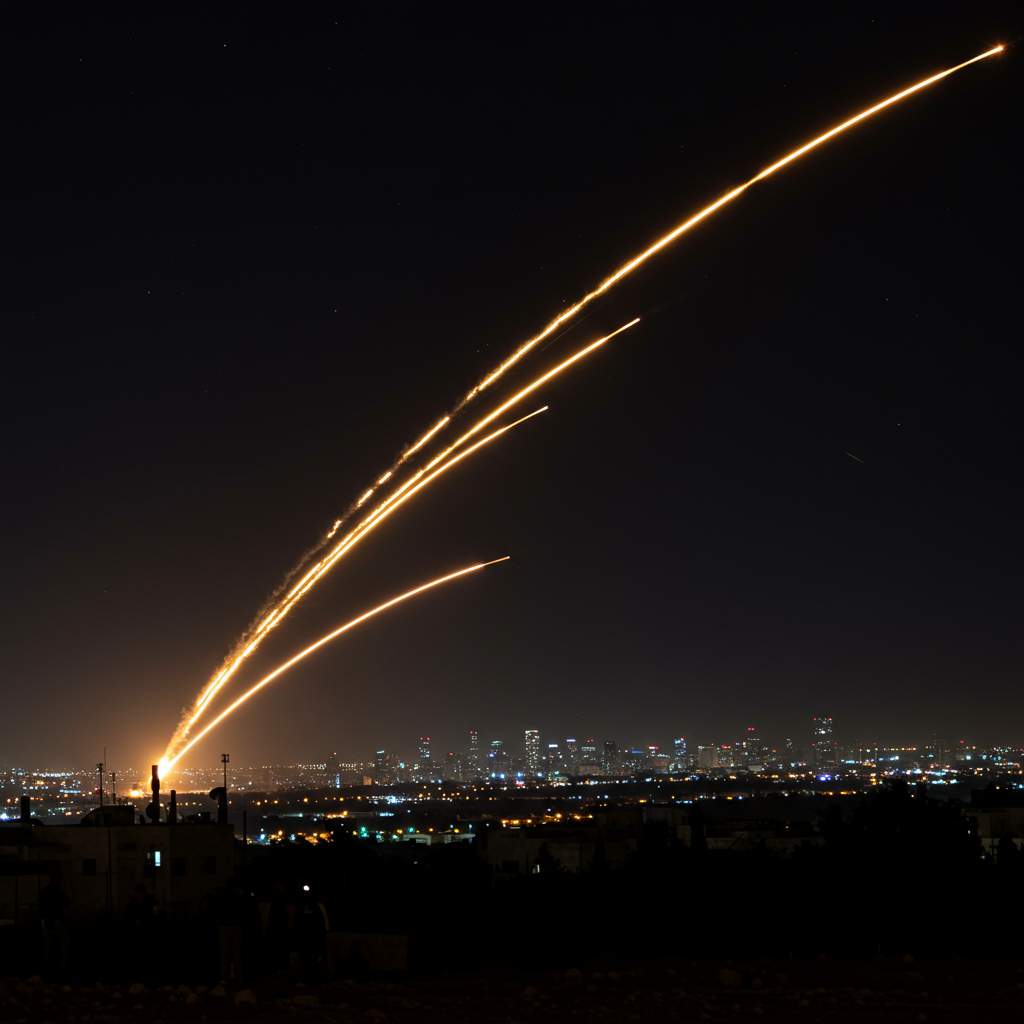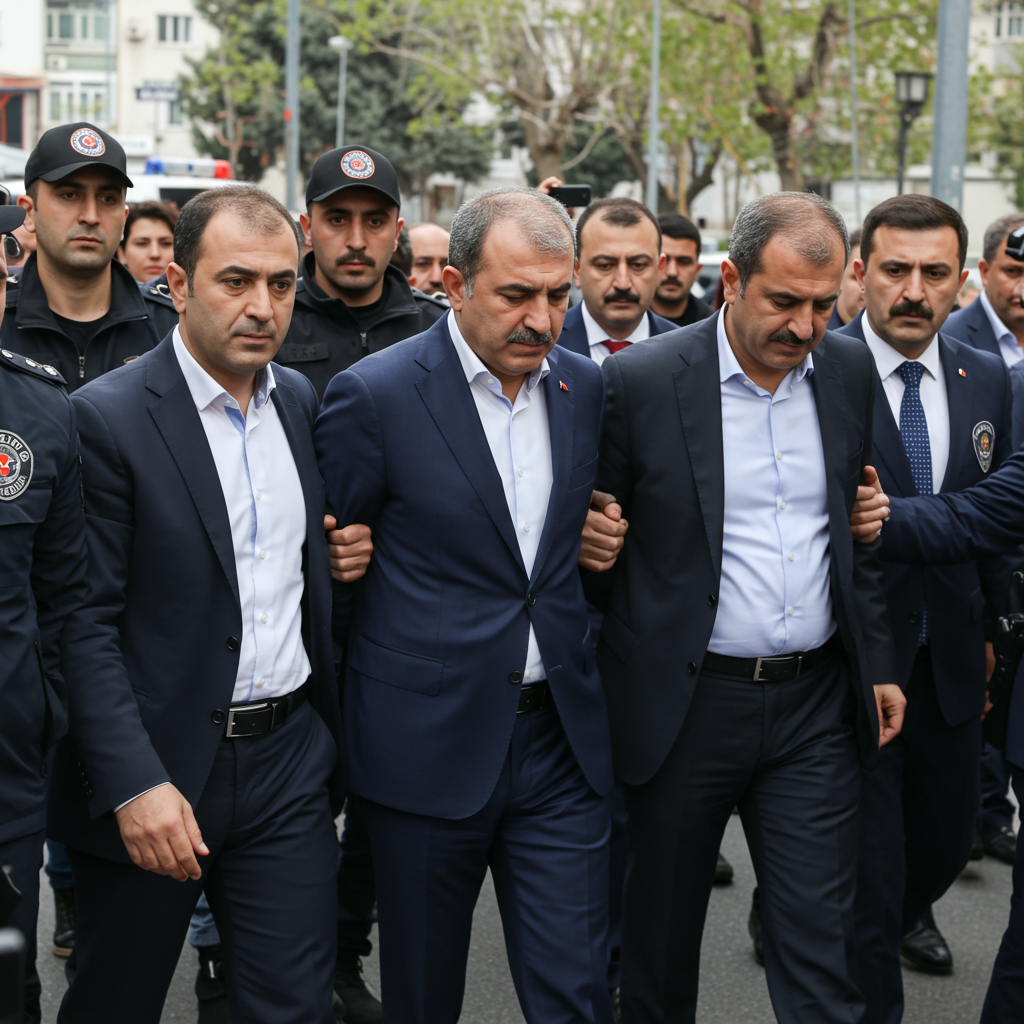The Middle East conflict witnessed a dramatic escalation as Iran launched a significant wave of ballistic missiles directly targeting Israel. This unprecedented action followed closely on the heels of coordinated strikes by the United States and Israel against key Iranian nuclear facilities.
The missile barrage, which involved dozens of projectiles, struck multiple locations across Israel, including major population centers in Tel Aviv, Haifa, Be’er Yaakov, and Nes Ziona, as well as targets throughout northern and central regions.
Impact and Casualties in Israel
The Iranian attack resulted in considerable damage and casualties. Reports from emergency services indicated that at least 80 people were injured across Israel, with some sustaining serious wounds. Residential buildings were hit in several cities, including Tel Aviv, where Deputy Mayor Haim Goren stated that hundreds of homes were damaged. One report mentioned a search for individuals potentially trapped under rubble following an impact in Tel Aviv.
During the attack in Haifa, an Israeli air defense interceptor reportedly malfunctioned and crashed, causing damage and minor injuries, adding another layer of complexity to the defensive effort. While Israel’s missile defense system intercepted many incoming projectiles, a notable number managed to penetrate, demonstrating the scale and intensity of the Iranian assault.
The Preceding US and Israeli Strikes on Iran
Iran’s missile attack was a direct response to earlier, powerful strikes conducted by the United States and Israel targeting Iran’s nuclear program. On June 22, 2025, the US military, in an operation codenamed “Midnight Hammer,” struck three critical Iranian nuclear sites:
Fordo: A deeply buried enrichment facility, targeted with B-2 stealth bombers dropping 30,000-pound bunker-buster bombs. Satellite imagery later suggested damage to the mountainside at the site.
Natanz: Another key enrichment facility, also targeted by B-2 bombers.
- Isfahan: A site previously targeted by Israel, struck by Tomahawk cruise missiles launched from a US Navy submarine.
- www.euronews.com
- www.cbsnews.com
- <a href="https://abcnews.go.com/International/live-updates/israel-iran-live-updates?id=122881565&entryId=123088824&utmsource=facebook&utmmedium=social&utmcampaign=dhfacebook&utmcontent=null&fbclid=IwQ0xDSwLD3-1leHRuA2FlbQIxMQABHkvy87OngnKMPIgcg9D2Ie3GHYQpNIVObYiJa6pRCbVDqsfDyj2HAgkOHdKuaem0GLIsEpsUFRGW2-HghF6IA”>abcnews.go.com
- www.nbcwashington.com
- www.foxnews.com
US officials stated the objective was to significantly degrade Iran’s nuclear weapons capability, which they assessed was nearing the capacity to produce enough material for multiple devices. The strikes were reportedly conducted in full coordination with Israel, which has been conducting its own extensive operations against Iranian military assets, including air defenses and missile capabilities, under “Operation Rising Lion.”
Iran’s Response and Official Stance
Iranian officials swiftly condemned the US strikes as a “criminal act” and a “savage military aggression.” Foreign Minister Abbas Araghchi declared that the US had “launched a dangerous war against Iran,” holding Washington “solely and fully responsible” for the consequences. He asserted that by attacking nuclear facilities, the US had crossed a “very big red line” and effectively “blown up” diplomatic possibilities. Iran maintained it reserved the right to respond with “full force” to defend its interests.
Following the US action, Iran’s paramilitary Revolutionary Guard launched its missile barrage. State TV showed test footage of the Khorramshahr-4 ballistic missile, claiming it was used in the attack on Israel.
Israel’s Retaliation and Broader Conflict Context
Immediately after the Iranian missiles hit, the Israel Defense Forces (IDF) launched its own wave of strikes inside western Iran. The IDF reported targeting dozens of Iranian military sites, specifically focusing on missile launchers that had been used to fire at Israel. They also claimed to have destroyed two Iranian F-5 fighter jets at Dezful airport and hit sites near Isfahan’s airport. The IDF stated its forces identified and eliminated Iranian soldiers loading missile launchers during these retaliatory strikes.
These direct exchanges are part of a broader, escalating conflict between Israel and Iran that has seen continuous missile and drone attacks over the preceding weeks. Casualty figures reported by both sides in this wider confrontation are starkly different: Israeli sources reported around two dozen deaths in Israel from the overall Iranian actions, while human rights groups monitoring the situation in Iran claimed hundreds of deaths there as a result of Israeli strikes.
International Reactions
The sudden escalation triggered international concern. France expressed concern and stated it was neither involved nor notified in advance, urging restraint. The UK confirmed it was notified but not involved, while Bahrain, home to the US 5th Fleet, advised its citizens to limit movement due to security developments. The head of the International Committee of the Red Cross warned the situation risked escalating into a wider war with irreversible consequences.
Notably, the International Atomic Energy Agency (IAEA) initially reported no increase in off-site radiation levels near the bombed Iranian nuclear facilities but convened an emergency meeting to discuss the situation.



